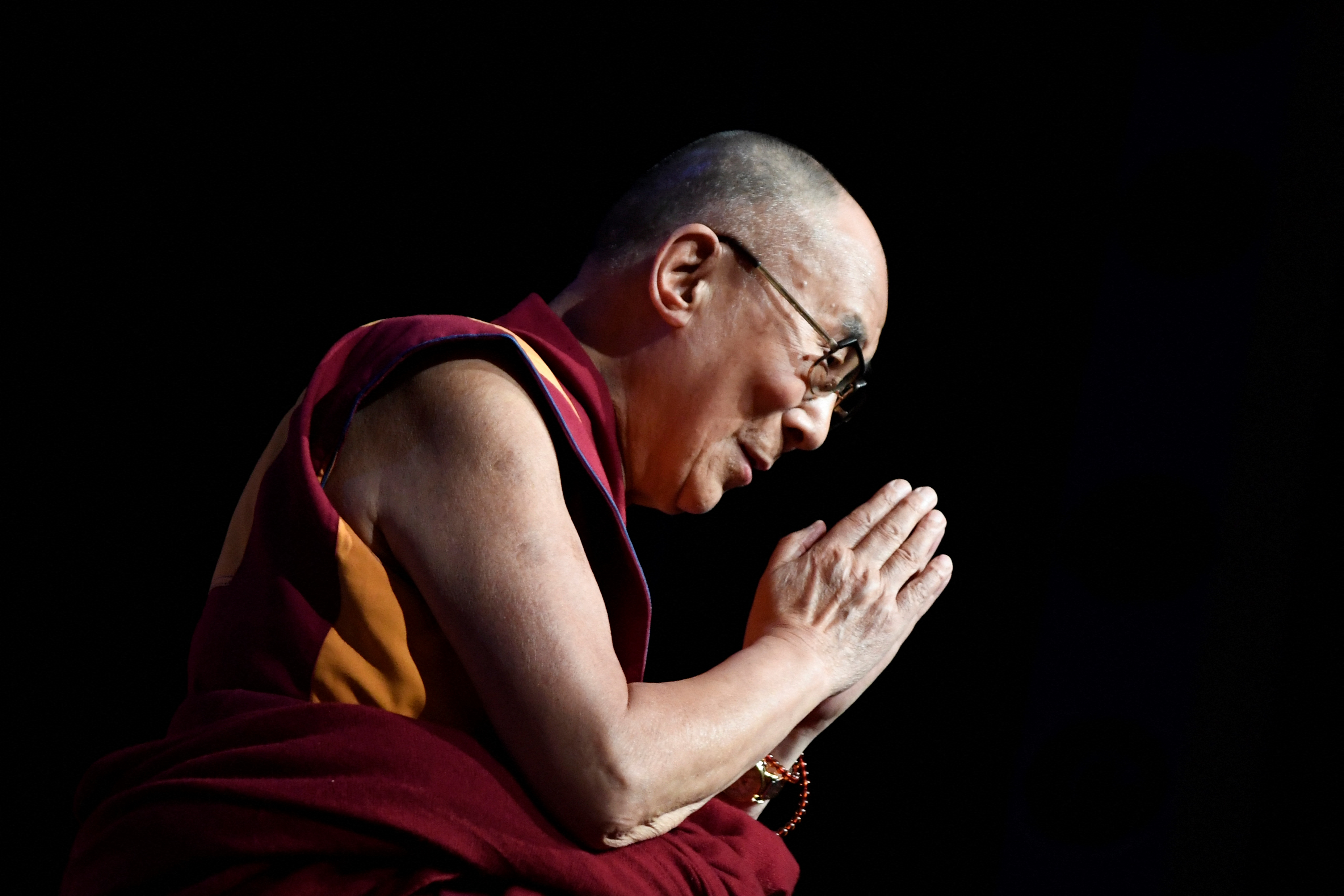McLeod Ganj , India – Esoteric questions of reincarnation rarely have real-world political consequences, but many fear the search for a successor to Tibet’s Dalai Lama could inflame regional rivalries.
The 88-year-old spiritual leader, Tenzin Gyatso, has shown no indication of serious health issues, and has said that his dreams suggest he could live until he is 113.
But as Tibetans mark on Sunday the 65th anniversary of the failed uprising against Chinese forces that led to him fleeing into exile in India, the question of who will succeed their ageing leader is in sharp focus.
Tibetan activists are keenly aware that his death will mark a major setback in his push for more autonomy for the Himalayan region.
It would deprive the cause of a Nobel Prize winner whose moral teachings and idiosyncratic humour have made him one of the world’s most popular religious leaders.
Many expect China will name a successor.
That raises the likelihood of rival nominations for the six-century-old post, including one chosen by exiled Tibetans based in India, a regional rival of China.
Tensions between the world’s two most populous countries have already flared after a deadly Himalayan border clash in 2020.
Here, AFP explains how realpolitik may impact the question of reincarnation.
Reincarnation or emanation?
While the bodies of previous Dalai Lamas have been entombed in stupa burial mounds, Tibetans believe their soul carries on, living in a new being.
Tibetan monks traditionally choose the Dalai Lama through a ritualistic search that can take years, seeking telltale signs a child is the reincarnation of a spiritual leader first born in 1391.
The 14th Dalai Lama, who has lived in exile in the northern Indian town of Dharamsala since the failed uprising in 1959, has floated the possibility of a non-traditional succession.
He already ended the post’s political powers in 2011 in favour of an elected Tibetan government-in-exile.
Keeping Beijing on its toes, he has alternatively suggested that his reincarnation could be a girl for the first time, or that he might be the last Dalai Lama.
Instead of reincarnation — whereby the soul returns in a newborn — there is also the intriguing possibility of “emanation before death”.
In that case, Tibetans believe the Dalai Lama’s spirit could transfer to an adult successor.
“It is possible for the Lama to appoint a successor who is either his disciple or someone young who is to be recognised as his emanation,” the Dalai Lama said in 2011.
What will China do?
China’s officially atheist government has called the Dalai Lama a separatist.
In 1995, Beijing detained a child that the Dalai Lama had recognised as the Panchen Lama — another influential religious figure.
China, meanwhile, selected another child to become the Panchen Lama.
Rights groups have described the boy who was detained as the world’s youngest political prisoner, and his whereabouts remain unknown.
The Dalai Lama is determined his successor will not face the same fate.
“No recognition or acceptance should be given to a candidate chosen for political ends by anyone, including those in the People’s Republic of China,” he warned in 2011.
“It is particularly inappropriate for Chinese communists who explicitly reject even the idea of past and future lives… to meddle in the system of reincarnation,” he added.
He has also preemptively dismissed suggestions his successor’s name must be plucked from a “Golden Urn” — which Beijing controls — by saying its use “lacked any spiritual quality”.
India, meanwhile, which has long-hosted tens of thousands of Tibetan exiles, would be expected to continue its support and back a successor approved in the process set out by the Dalai Lama.
But that could raise tensions between the neighbouring powers, who have already clashed in contested border areas, including Ladakh, home to a sizeable Tibetan population.
What has the Dalai Lama said?
The Dalai Lama has promised to write a “predictive letter” for monks to follow around his 90th birthday in July 2025.
He has said responsibility for choosing any successor will “rest primarily” on his Gaden Phodrang Trust, a Zurich-headquartered foundation.
But he has also suggested he may be the last Dalai Lama.
“If I die before Tibetans regain their freedom, it is only logical to assume that I will be born outside Tibet,” he wrote in his autobiography, “Freedom in Exile”.
“Of course, it could be that by then my people will have no use for a Dalai Lama, in which case they will not bother to search for me,” he added.
“So I might take rebirth as an insect, or an animal — whatever would be of most value to the largest number of sentient beings.”








